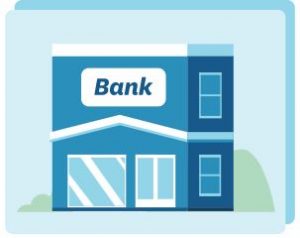
Starting a business can be expensive, but what if you don’t have the cash? What sorts of business finance are available? And how do you get access to them?
Your business funding options
Not all businesses can get every type of finance. For starters, you can’t sell a stake in your business if you’re a sole trader or a partnership. And you can’t issue share documents unless you’re a corporation. The idea at the core of your business will also affect your business funding options.
There are lots of business funding options, but they fall into two broad categories:
- Debt (lending)
Where you borrow money and pay it back, generally with interest. - Equity
Where you get cash by selling a part of your business to an investor.
Presales are a third way to raise funds. In that scenario, customers pay before you’ve created the products or services they’re buying. Debt and equity are far more common, however. Businesses that have access to both tend to prefer debt.
 Debt finance generally comes from institutions like banks and finance companies.
Debt finance generally comes from institutions like banks and finance companies.
Debt financing pros
- It’s easier to find.
- You retain full control of the business.
- You keep profits to yourself.
- Interest is simple to budget for.
Debt financing cons
It’s harder to fund innovative business ideas through debt financing. If you have a mind-blowing new idea, you’ll probably need to explore equity financing, private loans, or presales.
 Equity finance comes from investors and will require you to have good interpersonal skills.
Equity finance comes from investors and will require you to have good interpersonal skills.
Equity financing pros
- You pay back nothing if the business fails.
- You can access the investor’s networks.
- Investors give strategic advice.
- Investors are open to risky ideas.
Equity financing cons
Investors get some control over your business and profits have to be shared. As a startup, you’ll sell shares at their cheapest. After a period of success, it may feel as though you gave them away.
Common types of bank loans
Banks offer debt financing in two main ways:
- Term loans
Where you borrow a lump sum for an agreed amount of time and make monthly repayments. The lender works out the interest you owe every month and adds it to your debt. - Line of credit
You’re given a borrowing limit and only withdraw the money if and when you need it. You only pay interest on what you use.
The amount of money you can get, and the interest rate, may depend on how you secure the loan.
How will you secure your loan?
Security is something that your lender can claim to get their money back if you stop making repayments. It can include things like:
- real estate such as a house
- other assets such as vehicles or expensive equipment
- a personal guarantee, which allows the lender to sue you for unpaid loans
As you move down the list, the size of loans get smaller and the interest rates get higher. But to offer something as security, you have to be prepared to lose it, so this is often a difficult choice.
You can also take unsecured loans. A credit card is an example of that. But the borrowing limits will generally be lower and the interest higher.
How to apply for a loan
To apply for a startup business loan from a lender such as a bank, you will need these four things:


A good credit score – This shows how reliable you are at paying bills.
A solid business plan – Lenders will be interested to see your sales forecasts, budget, and time to profitability.


A shopping list – Say what the loan will be used for (including the cost of each item).
Security for the bank – You’ll also need to say what the lender can take if you stop making repayments.
How much to borrow to start a business
Your budget can help you here. It’ll show how much cash you need to build the business, and you’ll know how much of that needs to be borrowed. Now take that amount and work out what the monthly repayments will be. Most lenders have online calculators to help you. The bigger those repayments, the more sales you need to break even, so don’t take this step lightly. Work with us to see what you can realistically afford.
Operational costs are part of business finance
There are costs to start a business, and then there are costs to run it. You’ll need to have enough money in the bank to cover those first weeks or months of operation. There’s not much income in those early stages.
When taking a loan, consider taking out enough to cover early operational costs as well. Or, at the very least, make sure you still have enough credit left with the bank to go back to them later.
How to budget for debt
You don’t need to be afraid of debt. Most businesses live with it every day. But stay alert to the effects of interest charges. Work out what interest will add up to every year and put it into your budget as a cost.
Before you take a loan, check out what would happen to your budget if interest rates jumped up a couple of percentage points. How much more would it cost you every year? Could you still afford the repayments?
Alternatives to banks
Wondering how to start a business without a bank loan? We’ve already talked about equity (getting investors), but there are other options, too. Three of the more common are friends-and-family loans, peer-to-peer lending, and crowdfunding.
Source: Xero
We can also help you find the right funding for your business, having partnered with Capitalise to make it easy for businesses to access funding.
Find out more, or alternatively, contact us on 01904 655202 or email enquiries@hghyork.co.uk.







